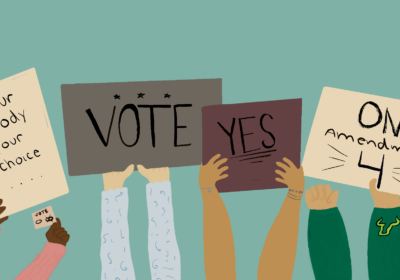OPINION: Supreme Court ruling undermines Environmental Protection Agency

On June 30, the Supreme Court issued a controversial ruling stating that the Clean Air Act doesn’t give the Environmental Protection Agency (EPA) authority to regulate carbon emissions in a way that would force the country to transition away from coal-powered energy.
This ruling should be overturned as it was out of line and undermined the purpose of the EPA.
In 1970, when the EPA was first created, it was tasked with creating and enforcing standards and guidelines that will protect the health of people and the environment, as stated on its website. It was trying to do that by regulating coal-burning power plants in order to try to control the amount of carbon dioxide released into the atmosphere.
Greenhouse gasses emitted by these power plants have been detrimental to the country in recent years. They are responsible for nearly 30% of carbon dioxide output in the U.S., according to a June 30 PBS NewsHour article.
In 2021, the average carbon dioxide in Earth’s atmosphere reached a record high of 414.72 parts per million, an uptick from 412.5 parts per million, according to a 2022 article from the National Oceanic and Atmospheric Administration.
In response to the rising carbon levels, the EPA attempted to push the country toward alternative power sources in order to fulfill its mission of protecting the environment and public health. However, the recent Supreme Court decision has severely hindered the agency from doing so.
This ruling doesn’t just undermine the power of the EPA, but some professionals believe it will also delegitimize other government agencies.
“I think it’s going to take years before we fully appreciate the enormous impact that this ruling is going to have, not just at EPA, but as you’ve mentioned before, across federal agencies, the FDA, how we regulate our food, how we make sure our drugs are safe. All this seems to be influenced by industry,” former EPA Administrator Christine Todd Whitman said in a July 5 interview on the radio podcast On Point.
The EPA is made up of experts in matters of the environment, climate change and other such things. The Supreme Court is not. By strictly limiting the power of the EPA to actually set and enforce policies to benefit the environment, the court is essentially claiming to be more of an authority on this matter than the expert government agency.
“And let’s say the obvious: The stakes here are high,” Supreme Court Justice Elena Kagan said in her dissenting opinion. “Yet the Court today prevents congressionally authorized agency action to curb power plants’ carbon dioxide emissions. The Court appoints itself — instead of Congress or the expert agency — the decision maker on climate policy. I cannot think of many things more frightening.”
The very purpose of the EPA is to take action to protect the environment. The recent decision by the Supreme Court has undermined the authority this agency was given and deserves to be overturned for the good of the environment and public health.






